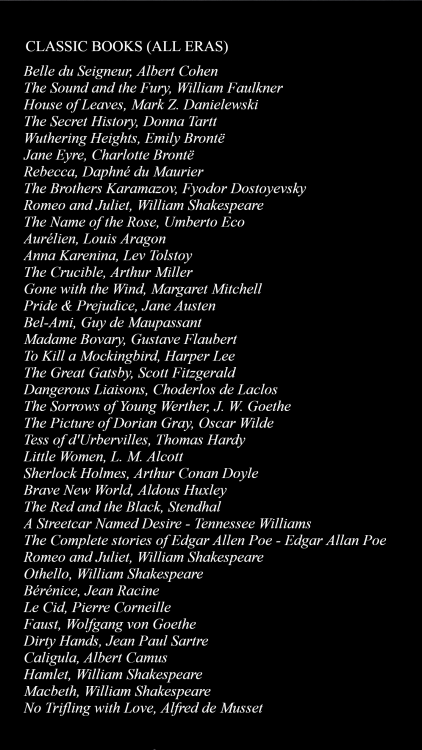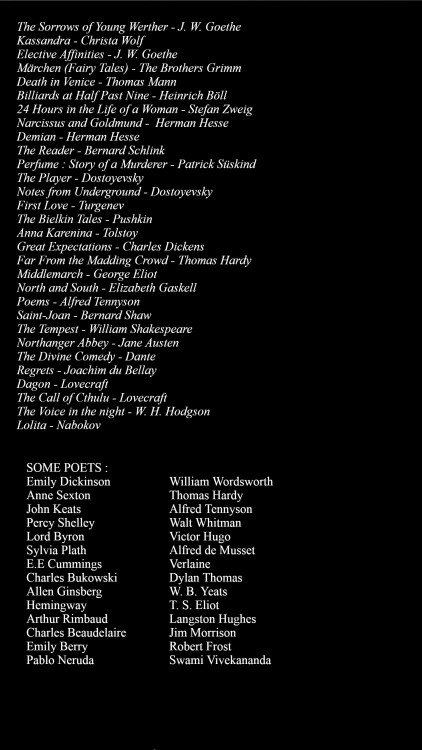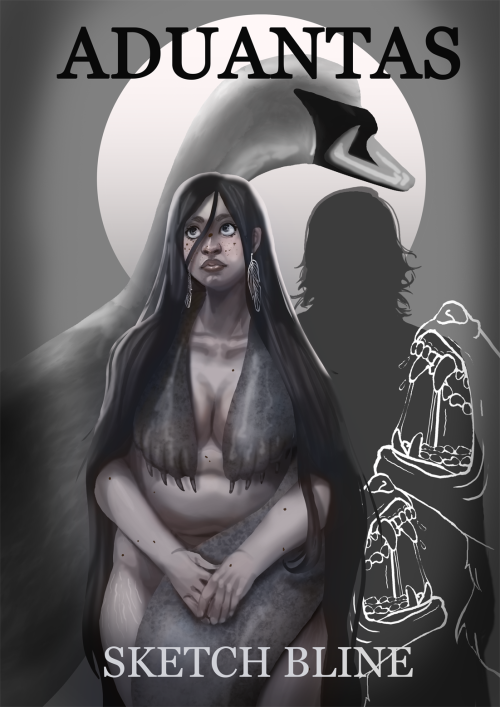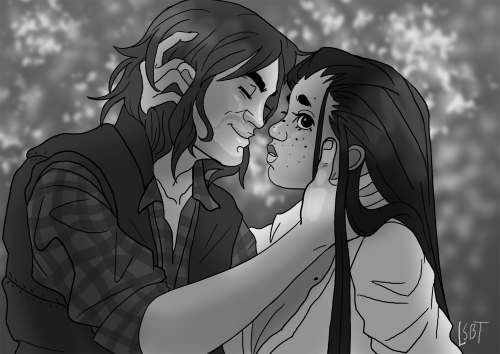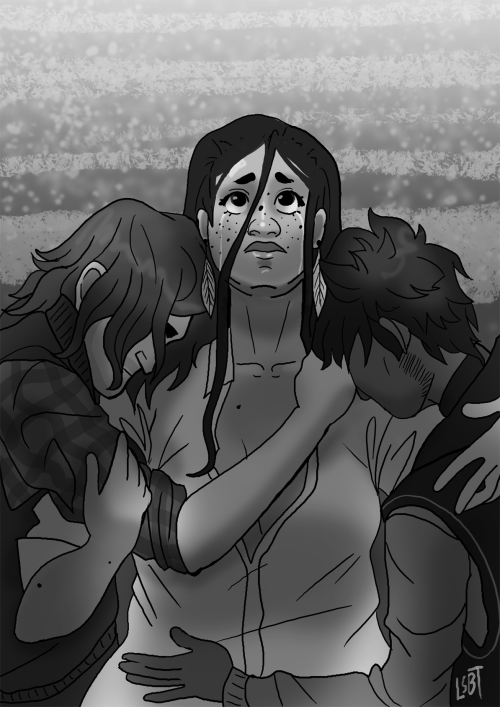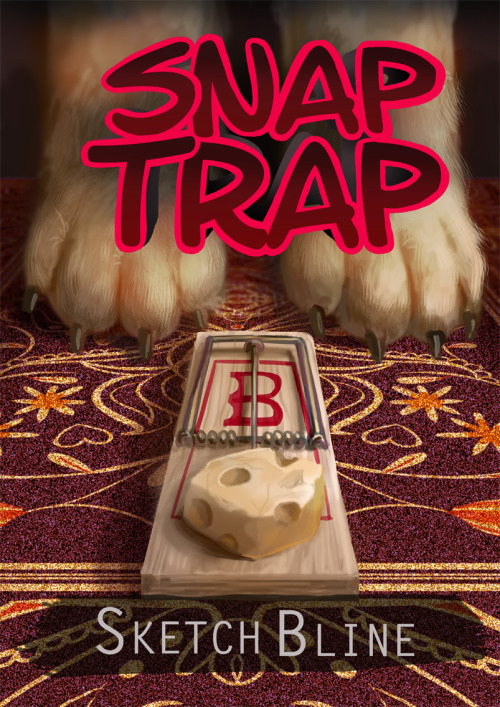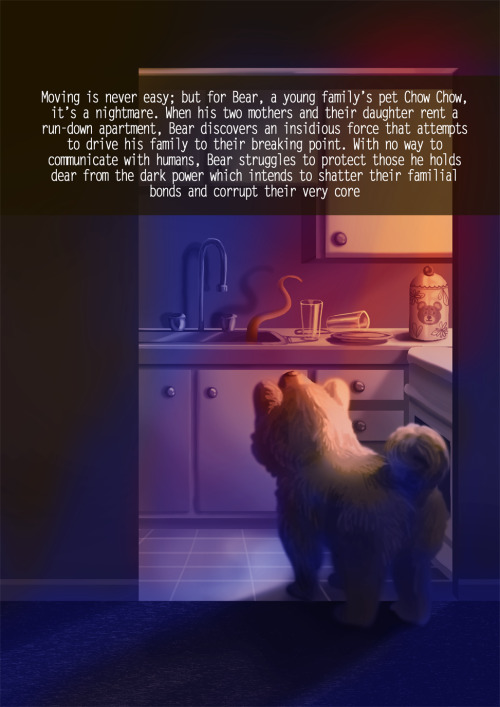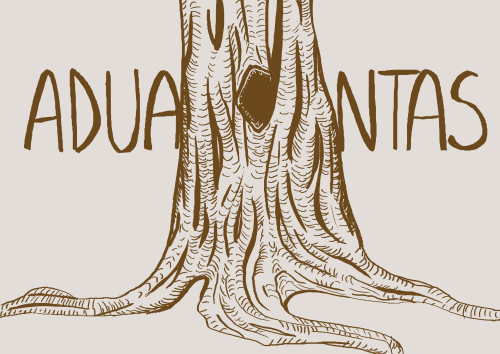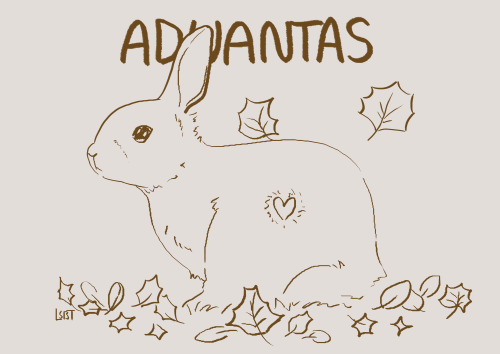#writeblr
If you feel like you’ve seen this alread, that’s normal. This list of recommendation has been previously posted on my first account @praestantias which has been deleted for some reasons. So here I am, reposting it.
Hating how elitist and eurocentric the dark academia community became, I would truly appreciate that you leave some recommendation of book written by people of color, for I noticed that I am guilty of the eurocentric part, but I am really want to educate myself and read more non-white books.
Thank you for your suggestions!
Post link
hey yall! remember i posted about my weird little manic man named jacke a while ago? his wip is going strong, and i’m going to post an intro soon, but he has a playlist! i don’t usually make playlists for my stuff, but jacke just Jumped off the page and i noticed him everywhere i went to listen. i’ve been listening to this while writing his wip all morning. enjoy!!
https://open.spotify.com/playlist/7zvsEZaUadL0iSxaJrd0wb?si=cc9b9ddc03974a72

AS THE SEA HORN BLOWS: WIP INTRO
status: second draft, editing. 45k at the moment
genre: fantasy romance novel (actually set in the same world as wtwc and the blood series!)
tropes used: sunshine/grumpy, one sided enemies to lovers, mlm with a side of wlw, the “good lord get this boy some therapy” but he actually does
one sentence pitch: traumatized crime lord falls in love with his (also traumatized) therapist
house lord freddie khel never thought he’d make it out of the diamond cage free-for-all prison alive. but thanks to a deal his best friend sari struck with string pulling calin beryn, he does. he gets to go back to being house lord, conducting business while trying to ignore that he did not come back from the cage the same as he entered.
but calin beryn provides just three problems: 1), he’s the laughingstock of a house who is freddie’s mortal enemy, the house which coincidentally locked freddie up in the first place 2), he’s insisting he become freddie’s therapist as his end of the deal, and 3), he’s the most beautiful man freddie’s ever seen, relentless and immune to freddie’s every attempt to shake him.
when freddie takes the therapy at the concerned request of his best friend sari, a passionate affair arises between him and calin that complicates his already mixed feelings. he assures himself it’s just “part of the mutually consensual therapy” while keeping one thing in mind.
a khel is not supposed to fall in love with a beryn. but calin is nothing like any beryn freddie has ever met.
lmk to be added to the taglist
here it is, the dearly beloved of mine i’ve had for about 8 months!! she’s in the mid to late editing stages right now so i thought it time i introduced her <3
General:@chaotic-queer-disaster@worldbuildng@twoseeds@magic-is-something-we-create


Want a bratty sub, a demon daddy with… creative anatomy, and a world order defined by your natural dominance or submission? Of course you do. Maximum heat, kinks aplenty.
Finally posted the final chapter of Aduantas! It’s been a while coming, but I’m glad to say its finally complete.
Aduantas is an queer, adult, modern fantasy, romance novel. Set in Ireland, the story follows Ann: a selkie disguising herself in plain sight as a socially elite swan maiden. When a festival celebrating her alter ego fills the streets of the local town, tragedy strikes her selkie community and leaves her vulnerable and seeking comfort from a sympathetic woodsman, Tate. While she recovers with his support, she finds herself drawn to him in more ways than one. He becomes a rock. A protector. But what will he be to her when she discovers the strange beings that lurk curiously within the near by woods?
Stripped of her foundations, Ann must decide how she is going to continue her life after misfortune: will she move forward with acceptance of the events that traumatized her or will she clutch on to the remains of anything that can help fill the void?
You can read the whole thing from the beginning on AO3 !
Post link
Just published my first book on Amazon! (Second one to put up online) I would love to hear what you all think and hope it is a fun read!
Moving is never easy; but for Bear, a young family’s pet Chow Chow, it’s a nightmare. When his two mothers and their daughter rent a run-down apartment, Bear discovers an insidious force that attempts to drive his family to their breaking point. With no way to communicate with humans, Bear struggles to protect those he holds dear from the dark power which intends to shatter their familial bonds and corrupt their very core.
Snap Trap is a young-adult, suspense, psychological thriller novel. Told from the overlooked perspective of the family pet trapped in a horror narrative, this story explores a fresh point of view to a familiar genre.
You can check it out here!
Post link
“but somewhere between our conversations — I had started to hope for something more than usual — your likes on my posts, your name popping up in my notifications and calls had started to bring smile on my face. I found you when I wasn’t looking for anyone and perhaps, that’s why being with you was becoming a part of me. I wanted to know a lot about you — your favourite color or if you like to watch the sunset more than the color of sky as the sun rises. I wanted to see how your eyes shine when the moon casts it’s light on your face and we would see the stars at night. I am unsure if the timing wasn’t right or if what I felt wasn’t real but I guess what we had didn’t mean to last — you wanted me to stay and I thought we could go on forever but I’m glad we had our own little infinity.”
— memoirsofbilal (via Instagram)
WRITING POC IN CHILDREN’S FANTASY
I’ve been wondering about this for a while, and I would really love to hear from any people of colour who would be kind enough to help: if you’re writing a fantasy book for kids (roughly 12 years of age) with protagonists of colour, how much do you think racism should play a role? I know it’s generally seen as a cop out in adult fiction to create a fantasy world where there’s “no such thing as racism”, but how would you advise someone trying to write inclusively for all kids?
I’d be really grateful for any advice, or reblogs if you think some of your followers might be able to help me.
I chose to use the wording grow up without money here, because poverty is relative. I mean, so is money but words are also limited.
To offer up context, I’m basing this of my own experience and I grew up having very limited amount of money at my disposal, but I was never lacking in food or a roof or anything like that. But there are a couple of things I’ve done my entire life, still do, and I realised, not everybody does. So let’s talk about some of those stuff for writing sake.
1.- I am constantly comparing. When I got my first job at 16 (and I mean 16 and a week, I did not wait long), everything I wanted had to be worth the time. A computer? I would love one, a cheap but functional one is 200 euros, I earn 5 euros an hour so that’s about 40 hours of work. I’m going to use a computer for many, many hours so… worth it! I also compared things to donuts, because the four park of donuts was 1 euro so a computer would be 200 packs of donuts.
This is something I still do. Which is problematic because my current salary is 3 euros an hour, and I need to buy food. So I’ll be in the supermarket like, yeah, that’s cheap and all, but 3 euros is one hour of my work and I don’t take long to eat it, so… ya know.
My boyfriend has to constantly remind me, that’s a stupid way to think, but it’s hard and I don’t think I’m anywhere close to being able to turn it off.
2.- Over-analysing every single purchase. It’s okay for big things, it’s a small problem when you’re analysing phone chargers with a fifty cent price difference, the durability of face masks or watching twenty minute YouTube reviews about a cheap pack of scented candles because, going back to point one “one euro fifty is half my salary and if this candle doesn’t deliver the amount of hours it has promised I will regret it later”.
3.- Over-purchasing things on sale. It’s counterproductive to the goal, but I mean, come on, if the donuts cost 50 cents instead of a euro, how can I not buy it? What do you mean I don’t eat donuts? That’s because they’re expensive, so I best buy seven packs while they’re cheap. You do not need to know the amount of canned goods I have accumulated through sales. And yes, they last for ever. But yes, they also occupy space in my tiny kitchen.
4.- Anxiety from throwing things away. Literally anything, I have to find a use for it, I have boxes of literal rubbish, which, yes, I do use in crafts. I have food in my fridge (in closed containers obviously) that went out of date long ago but throwing it out causes so much anxiety that I just leave it there until my boyfriend can come up and get rid of it for me.
If I get free headphones with anything, do I need them? Not at all, will I hold on to them as though they were the best thing to ever enter my house? Yes.
5.- If you get the chance to get something for free, but it requires a choice, expect a lot of analysing. Even if it’s a stupidly small amount of money. I had a couple of euros in Google credit from doing surveys and I don’t know how many hours I spent analysing the PlayStore for the best choice of games. (I got the game threes for a euro, honestly, good investment, very enjoyable).
6.- Free is free. Are Google Surveys worth my time for the credit they give me? Yeah, actually, I’d recommend it if you are an android user. But I’ve also written 10k word stories on a subject I did not like for 4 dollars, not even euros. I’d say this was a low point, but I fear I’d still take the job today. I don’t actually have more money coming in then I do going out. Which is normal because I’m a student and my income comes from an internship that I do part time for practically no salary. I know it’s normal and I can make up for it later, but I feel as though if I don’t do the work I am offered, even if it’s not fair, by turning down any money, I become culpable of my situation. So, any offer for money, I’ll take. Even if that goes against my morals (minimum wage), against my health (waitressing jobs in the summer that push me to my limits) or just plain common sense.
I know a lot of people are like this. And, I have to point out you should value your time. But, if you can’t, if you need to do the job, at the very least, try not to feel guilty if you didn’t do that good of a job. That writing job for 10k, they asked me to rewrite it, claiming my quality wasn’t high enough (I’d already done several revisions and there was open communication, however the deal was for a first draft which is never going to be the highest quality). And I put my foot down, I explained that I was earning less then 50 cents an hour and I wasn’t going to put more hours into it. Thankfully they still paid my my well earned four dollars, but I think the ability to put foot down was more valuable than the money this time.
7.- When something breaks it can easily cause burn-out or emotional breakdowns. I’m living in an emotional breakdown this year, and part of that is because my ipad (which I am super proud of because I bought second hand years ago for next to nothing) is struggling. It’s very old now, the battery is on the way out, updates are done, and it has several glitches. I depend on my ipad for taking digital notes for university and I don’t think I could go back to using a pen and paper. But the idea of buying a new one is absolutely terrifying. To the point where if I actually stop to think about it, and realise it’s like a year of my income, well, I get physically ill.
In fact, money is probably the biggest cause of mental breakdowns for me. Even when I’m doing well financially. Because I know what it’s like to eat less than recommended portion sizes in an attempt to save a couple of coins. I know what it’s like to track every single cent.
8.- The fear of having nothing never really goes away. The fear that if I make the wrong financial decision, I will lose everything and somehow end up homeless or unable to buy food… it’s a stupid fear. It’s pretty much impossible because I have family, I have friends. But… it’s something I cannot shake. It’s fear that follows me everywhere. And I can’t say that this fear will never go away, because I’m a student, I have never truly grasped financial stability. But I can’t imagine a life without it. Perhaps one day I’ll be able to go to the supermarket without flinching at the prices, but I don’t think I’ll ever truly be at peace with money.
You know the expression: Money won’t buy happiness? Of course you do. Did you know studied have actually been done and it’s kind of true? It’s true over a certain point of money. Which, makes sense, obviously. But I always think about this expression, because people say it to me when I’m obsessing, and I get angry with them. Because I’ve always been beneath that line, more money has always meant more happiness, because it’s always meant further stability.
But it’s a stupid thing to be angry about. Because yes, they are being ignorant, but the truth is, people who say this, probably have never lived bellow that line. And that’s good. I think it’s good that there are people out there who get to grow up without that stress.
And it’s important to realise in today’s society, there are a lot of people who are rich in a way that is wrong. But there are also a lot of people who may feel rich to us (us being the people who are bellow this line), but they aren’t really the problem. The middle class isn’t the problem, even if they are comfortable. And if I truly start going on about financial inequality… well, we’d have a couple more posts because I study finances and am specialising in ethical finances including inequality, so, I’m going to leave it here.
I hope these eight observations are useful to your writing, or just interesting in general.
As usual, check out my book, stories I’ve written plus other social medias: here.
Also, if you find yourself lacking in money and don’t think you’re spending that much, please keep track of your money? Excel is a great tool and you will surprised!
If, money causes you a huge amount fo anxiety like me and you do not too much financial trouble, please stop keeping track of your money and just occasionally check your bank balance because the obsessive control is causing you more harm than good at this point.
Love you all and have a great day!
I hate gift giving.
I mean, I love it when I know what to give but that’s rarely the case.
Thankfully, in fiction, character’s will like what we tell them to like. But a powerful gift within the narrative requieres a bit more than for the character to like it. So here’s a couple of ideas to help:
1.-Make it something useful. Show your character having a recurring problem, preferably something unimportant, something trivial. Don’t show them complaining, show their frustration through smaller details such as them taking a deep breath, rubbing their nose or pausing for just a second mid-task.
This shows two important details on part of the gift giver: them paying attention to notice the problem and them finding a solution.
Attentiveness plus problem solving. Meaningful no matter how minor.
2.-Make it something they like, but something they’ve bought up only passingly before. If it’s something they love and go on about, anybody could get the right gift. Make it a small detail, maybe they’re at a farm in an early chapter and the receiver mentions their favourite animal, towards the end of the book the gift givers gets a plush, a figurine or a necklace with the animal.
Same as before, attentiveness. Just make sure it doesn’t happen too soon, if the information is still fresh the reader will be like: “Well, you literally just bought that up to make this gift meaningful.” And they might be right, but give them time to forget and then be reminded and it’s like: “Oh! They remembered!”
I did a whole post dedicated to giving time for things to sit, it’s a thing.
3.-Make it hard. Hard to find. If they make it themselves, hard to make. Maybe they need to get the materials, hard to collect materials for? You ever heard of the McGuffin trope? Some people say it’s bad writing, personally, I believe it depends. But it’s the idea that the item doesn’t matter, it’s just an excuse for the actions to get it. Look at the gift like a McGuffin. But if you want it to be more meaningful, combine it with one of the previous points.
4.-Maybe the gift isn’t the important part, maybe it’s the way it’s wrapped, with her favourite colour wrapping paper, maybe it’s the hand written note with a desperate attempt at cursive because, “You’re hand writing is so pretty, I thought it must matter to you.” Perhaps it a hand-made card that goes with it. Perhaps they’re separated for a mission but the gift givers sneaks away and risks a lot to get the gift to the receiver despite it all. (This could also end in a big argument but that’s up to you).
Remember sometimes the point of a gift isn’t the gift but the situation surrounding it.
5.-Make it something important to the gift giver. This is a pretty common trope but when properly established it still gets me every time. This is the whole, “Here, take my dead mother’s necklace.” “But it means so much to you!” “But I’d rather you have it!” Trope. I’m a sucker for it.
Also, it doesn’t always have to come from the gifter. I have a scene way later on in my series where the love interest actually gives my main character something (not going to say what, that would be a spoiler) that he got from her father that once belonged ot her mother. It’s similar because the father gives it up so she can have it, but then it comes from the love interest. I’m not sure if this makes sense without context but obviously I don’t want to spoil like, final book scenes. But the idea is, there can be other characters involved in this, other than the two giver and receiver.
6.-Maybe it isn’t important, maybe it isn’t meaningful, maybe it become so over time. I have plenty of stupid bits of plastic that were given to me on a night out as a joke in between laughters, perhaps a baby Shark kinder egg or a pretty plastic ring. But then instead of getting rid of it, I put it away. I look back at it and smile remembering those nights. Something can be meaningless in the moment, but become meaningful just for staying around long enough.
Extra points if the grifter dies or otherwise leaves.
And those are my 6 tips. You can combine as you wish. Also, I used a love interest in one example, but anybody can give anybody a gift! I give gifts to my roommates, friends and family. And it’s just as important to work on the relationships that aren’t romantic as it is the romantic ones. (Unless you’re writing a romance I guess, but I only do fantasy, usually YA so, can’t really comment on that).
As usual, check out my book, stories I’ve written plus other social medias: here.
So, with christmas coming up, how’s your gift buying going? I knows it’s not that soon, but I have exams in November so I try to start really early. I have a special box where I just put things in.
EXTRA NOTE: I know, I know, I’ve been missing for a while. I’ve got one month at university and as always, exams, homework, chaos everywhere! I promise I’m still around, I promise I’ve got 18 drafts plus several lists of ideas. As soon as I have time I’ll get back into posting more often. I just have to prioritize school, work, paying for food and those good boring stuff!
Also, I’ll be putting my ebook on sale sometime this December for Christmas! So, you know, if you want a gift idea for someone who likes reading YA Fantasy with dragons, look out for that!
There are a ton of cool ways to do this!
Want to show a caring character? Show them loving their pet, show them helping a fallen bird.
Want to show a character being evil? Kick a puppy.
Both super obvious. Let’s check out some more.
Want to show a character as stern but caring? Have a very loyal dog or horse that show no sign of fear.
Want to show a character’s patience? Show them training an animal such as a puppy or a horse. This takes a lot of discipline and patience.
Want to show their bravery and compassion? Show them capturing and releasing a wild and dangerous animal from a location they are not safe at.
If they have pets, say for example a cat, how that cat behaves also says a lot about the owner. Are they allowed on the furniture? If they are allowed on the furniture, is it because the owner agrees with animals on furniture, or do they constantly complain about it? Telling us they aren’t good at being in charge. Does the cat always ask to be fed at the same time? That would tell us the owner is good at keeping a constant schedule.
Do they have books about animal care? Or do they instead claim to have learnt what they know from their parents?
Where did the cat come from? Adopted, bought? Was it sought out or did it just wonder in one day and stick around?
Also, all my posts are mostly directed at writing young adult fantasy, and something you often see in fantasy that doesn’t necessarily coincide with real world is that animals will behave like their owners. This is an obvious way to show a character of through an animal.
But even funner is to show an animal being nothing like their owner and forcing the owner to do things they are visibly uncomfortable with. I absolutely adore the typical serious all business character with his head on his palm while his other hand bounces some string around to help their daughter’s kitten burn of some energy.
Or a hyperactive child coming to terms with the fact their fish just isn’t going to do much. (Be careful with these kind of stuff, make sure to research. Children aren’t usually fit for taking care of animals, if you do have children in your story taking care of animals either express that they are an exemptions, who parents being involved or make sure it’s obvious this is a bad move, I’m sure everyone already knows this but I feel like I have to add it anyway).
Also, on that note, careful what animals you show as pets. I know it’s fantasy but if an animal isn’t a good pet irl you can have influence and cause trouble. An off-hand comment about, “oh, that animal usually isn’t friendly, it must be attracted to your magical power”, can communicate to a reader, hey, this is fantasy. Remember that.
Also, emotional support or service animals! Another great thing to include that can speak a lot about a person. Different people require different support and will have different support animals because of this. I have to recommend doing a lot of research into this though as I have never had a service animales and do not feel qualified to truly explain them. (Also, emotional support animal and service animals are two different things, look it up if you didn’t know, it’s quite interesting!)
Extra:
Here’s something I’ve seen a lot in media. Showing a character as being scared of say a dog as a way of showing them as being evil. Please don’t do this.
I get the theory behind it. Dogs are loyal caring animals and anybody who is scared of them clearly lacks empathy and understanding for the innocent animal that just wants to play!
Except, dogs are still animals, and although rare, they can be dangerous. A lot of people are scared of dogs. Yes, I’m scared of dogs. I love dogs, if I know them. But when I was about four years old, one Easter, sitting in London park with my new Barbie doll, this dog three times my size ran over and jumped on me, took my Barbie and broke it.
It terrified me.
The owner just laughed and called the dog off. I wasn’t hurt or anything but it’s a memory that remains close to me. And whenever I see an unfamiliar dog I may take a couple of steps to the side in an attempt to keep my distance.
I don’t feel attacked when I see fear of dogs used as a villain trope or anything. It just makes me roll my eyes at how people don’t understand the deepness of fears.
As usual, check out my book, stories I’ve written plus other social medias: here.
Do you have a pet? What is it? What are they like?
Character’s hair is one of the main defining characteristics, but hair isn’t just aesthetic. Hair has an affect on our day to day life, getting stuck in stuff, requiring care and as kids, an effective chew toy.
It’s something to consider in our writing. So, here are some things I experience as a person with kind of wavy/curly/fuzzy hair.
-It’s way longer than it looks. My hair doesn’t look short, it’s significantly over shoulder length, but it also doesn’t look super long. Of course, if I straighten it while it’s wet it actually reaches down just over my hips.
-It looks like you lose a lot because of it’s length. Because of the previously mentioned point, a single strand of hair of mine seems to go on forever. Whenever I brush my hair it looks like I’m losing handfuls and handfuls of hair. The amount of times people have asked me about my hair loss. And I’m just like, “nah, it’s normal”, because it’s always been like that and I’ve never had any problems.
-Sometimes, you do lose a lot, but it’s not going to make a difference. There are some occasions during exams or high stress moments I do begin to lose quite a bit of hair. But it’s never actually made a difference, nobody other than me has ever been able to tell. Another thing about curly hair is depending on days, weather and other factors, it looks more or less voluminous so even if it made a difference nobody would notice.
-If I cut it, I get horrible little curls. So, the way my hair works is the weight of the curls actually makes the very top of my hair straight. I like this. The style suits me and it’s easy to take care of. If I were to cut it, the weight would vanish and my hair would be completely curly. The problem is, sometimes hairdressers have made mistakes and cut strands too short, and then I’ll be stuck with this one random curls that won’t go away for literally years while my hair grows from shoulder length back to my hips length. Be picky with your hairdressers! Not just anybody can do curly hair, unfortunately.
-A brush will ruin it. A normal brush. Most brushed. Brushed are not only difficult and painful and time consuming, it just makes my hair fuzzy and horrible and far more tangles then prior. I do occasionally use a de-tangle brush before a showers if I moved a lot in my sleep or went on motorbike. But other than that I pretty much exclusively “brush” my hair with my fingers and a lot of conditioner in the shower.
-Straightening it lasts hours. As in a couple of hours and that’s it. When I was younger I tried and by the time I got to school it was fuzzy again. The only way my hair is staying straight is if running water is running down it.
-It gets caught in everything and is extremely painful. I think one of the most painful things I do on a near daily basis is I put my glasses on after my helmet, and every time it gets hair caught in them and pulls and ugh, so much pain. Especially the shorter hairs near the ears from my experience.
And that’s all I can think of for now.
As usual, check out my book, stories I’ve written plus other social medias: here.
I’d love to read writing references for hair unlike mine, if you know of any good ones, send them my way! (please)
May 28th- “I’d rather not”
[Faked death | iron|ditch]
Cw: faked death, restraints, manipulation, faint mentioned gore/torture, faked murder, captivity, noncon touching, restraints, knocked unconscious, kidnapping
They couldn’t breathe.
They couldn’t breathe.
Though the stale air of the basement surrounded them, leaving a stale taste in their agape mouth, a breath lodged in their throat begging to be released. .
But they couldn’t breathe.
“I know this must be upsetting,” Whumper sighed as they clicked off their phone and pocketed it. It didn’t do anything to help. The image was burned into whumpee mind, each terrible, explicit detail scarred into their memory.
“I’m so sorry you had to find out this way, but you deserved to know,” Whumper took a small step forwards, their face filling with concern as Whumpee began to sway.
“Darling, please say something,” Whumper’s gaze softened with concern as they reached forwards to cup Whumpee’s cheek, brushing away a tear with their thumb.
Despite the growing lump in their throat, Whumpee’s mouth began to move.
“Nn.. c-caret-…” They choked out, their knees finally buckling and they collapsed against Whumper with a sob. “Nno-”
“Oh sweetheart,” Whumper frowned, hugging their captive close. “I know this is rough, but they’re in a better place now, okay? They wouldn’t want you to be upset…”
•••
Whumpee didn’t need to know that so-called better place was knocked unconscious and tied up in Whumper’s shed.
After all, Whumper wasn’t a murderer.
“Prompt from @toreblogallthethings: “Drink this, it will make your teeth stop hurting", she said.
(note: this turned out a lot longer than I intended)
The day of the challenge dawned sunny, but with heavy clouds on the horizon and a brisk wind. Walduk felt sure his mother would have declared it to be an omen of some sort. Probably a bad omen. They were always bad omens. Part of him was glad she wasn’t there to croak about omens and the ill favour of the gods.
He immediately felt guilty.
He should never be glad that his mother was one of the ones taking during the last season of cold. Even if she would have declared him fated to fail, he still wished she could be there to see him. It was an honour to have even been selected for the challenge. She would have been proud of him.
Walduk strode with a purposeful stride. The other chosen were leaving their homes and joining the march to the training grounds. There were fifteen men and women in total. All chosen from among the clan’s finest warriors.
The chieftain and wise woman were waiting for the chosen. Leoven, the chieftain, wore ceremonial armour made of a single piece of carved bone. Legend claimed that the founder of their clan had slain a dragon and crafted that armour from its skeleton. The gleaming white was carved with sacred runes and had been freshly polished with a special oil so that the sun reflected off of it in a rainbow shimmer of colours.
Iriel, the wise woman, was somehow even more striking. She wore a fringed skirt with pure black fur around the waist. The leather was dyed almost as dark as the fur and had runes picked out with colourful beads. Otherwise her skin was only covered with painted scars–the reds, blues, yellows, and greens almost seemed to glow against her dark brown skin. Walduk wasn’t sure if it was simply a trick of the paint, or some inherent part of the magic of the ceremonial scars carefully placed on her body. She was as tall as Leoven, and if it hadn’t been taboo for a wise woman to wrestle in the mud, she would have given the chieftain a hard fight.
“Welcome, chosen ones,” Leoven intoned formally. “This is a sacred day for the Canegri, and you have been chosen by the gods themselves to compete in the challenge. Only those favoured by the gods will survive, and only the true Champion of the Canegri will succeed.”
Iriel ran her eyes over the assembled warriors. “Each of you must climb the Ancestor’s Mountain, cross the Gorge of Souls, and find the final resting place of Canegri’s Dragon. The first to bring back a tooth with be named Champion of the Canegri.”
lawyer who specializes in squatters’ rights & works pro bono to keep ghosts from getting evicted from haunted houses
no wait—
pro-BOO-no
Describing Voices
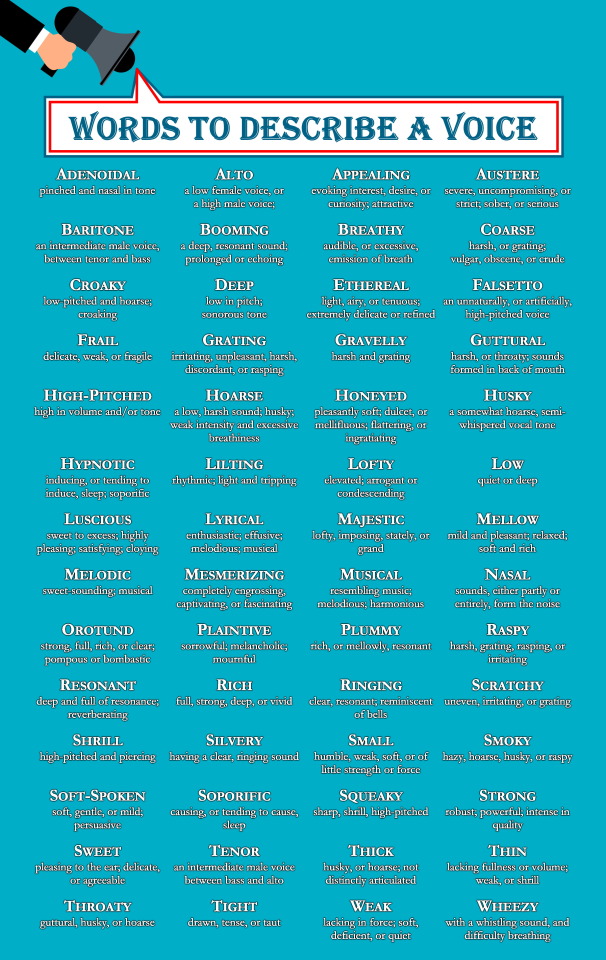

Words (and definitions) as text below cut.
Words to Describe a Voice
- Adenoidal: pinched and nasal in tone
- Alto: a low female voice, or a high male voice
- Appealing: evoking interest, desire, or curiosity; attractive
- Austere: severe, uncompromising, or strict; sober, or serious
- Baritone: an intermediate male voice, between tenor and bass
- Booming: a deep, resonant sound; prolonged or echoing
- Breathy: audible, or excessive, emission of breath
- Coarse: harsh, or grating; vulgar, obscene, or crude
- Croaky: low-pitched and hoarse; croaking
- Deep: low in pitch; sonorous tone
- Ethereal: light, airy, or tenuous; extremely delicate or refined
- Falsetto: an unnaturally, or artificially, high-pitched voice
- Frail: delicate, weak, or fragile
- Grating: irritating, unpleasant, harsh, discordant, or rasping
- Gravelly: harsh and grating
- Guttural: harsh, or throaty; sounds formed in back of mouth
- High-Pitched: high in volume and/or tone
- Hoarse: a low, harsh sound; husky; weak intensity and excessive breathiness
- Honeyed: pleasantly soft; dulcet, or mellifluous; flattering, or ingratiating
- Husky: a somewhat hoarse, semi-whispered vocal tone
- Hypnotic: inducing, or tending to induce, sleep; soporific
- Lilting: rhythmic; light and tripping
- Lofty: elevated; arrogant or condescending
- Low: quiet or deep
- Luscious: sweet to excess; highly pleasing; satisfying; cloying
- Lyrical: enthusiastic; effusive; melodious; musical
- Majestic: lofty, imposing, stately, or grand
- Mellow: mild and pleasant; relaxed; soft and rich
- Melodic: sweet-sounding; musical
- Mesmerizing: completely engrossing, captivating, or fascinating
- Musical: resembling music; melodious; harmonious
- Nasal: sounds, either partly or entirely, form the noise
- Orotund: strong, full, rich, or clear; pompous or bombastic
- Plaintive: sorrowful; melancholic; mournful
- Plummy: rich, or mellowly, resonant
- Raspy: harsh, grating, rasping, or irritating
- Resonant: deep and full of resonance; reverberating
- Rich: full, strong, deep, or vivid
- Ringing: clear, resonant; reminiscent of bells
- Scratchy: uneven, irritating, or grating
- Shrill: high-pitched and piercing
- Silvery: having a clear, ringing sound
- Small: humble, weak, soft, or of little strength or force
- Smoky: hazy, hoarse, husky, or raspy
- Soft-Spoken: soft, gentle, or mild; persuasive
- Soporific: causing, or tending to cause, sleep
- Squeaky: sharp, shrill, high-pitched
- Strong: robust; powerful; intense in quality
- Sweet: pleasing to the ear; delicate, or agreeable
- Tenor: an intermediate male voice between bass and alto
- Thick: husky, or hoarse; not distinctly articulated
- Thin: lacking fullness or volume; weak, or shrill
- Throaty: guttural, husky, or hoarse
- Tight: drawn, tense, or taut
- Weak: lacking in force; soft, deficient, or quiet
- Wheezy: with a whistling sound, and difficulty breathing
Words to Describe Tone of Voice
- Affected: false, or feigned; pretending to possess
- Arrogant: overbearing, assuming, insolently proud
- Authoritative: positive, peremptory, or dictatorial
- Bloodcurdling: arousing terror; horrifying
- Boisterous: rough and noisy, rowdy, unrestrained; noisily jolly
- Breaking: changing, or collapsing, suddenly
- Bright: animated, lively, cheerful, clever, or witty
- Brittle: fragile, frail, lacking warmth; having a sharp, tense quality
- Cacophonous: having a harsh, or discordant sound
- Caterwauling: long and wailing; a howl, or screech
- Cheery: in good spirits; cheerful, or happy
- Delicate: soft, or faint; subtle; tactful, or cautious
- Dry: plain, unadorned, indifferent, or matter-of-fact
- Dulcet: pleasant to the ear; melodious
- Ear-Splitting: extremely harsh and irritating; loud
- Enthusiastic: lively, ardent, eager, or passionate
- Faint: soft, weak, feeble, or slight; lacking clearness or volume
- Feeble: lacking in force, strength, volume, and distinctness
- Flat: without modification or variation; without vitality
- Forceful: powerful, vigorous, or effective
- Frank: direct and unreserved; straightforward; sincere
- Gruff: low and harsh; hoarse; rough, brusque, or surly
- Hesitant: wavering, irresolute, timid, or unpersuasive
- Insincere: lacking sincerity; sarcastic; hypocritical
- Irreverent: lacking respect; flippant
- Monotone: single tone, without harmony or variation
- Patronizing: offensive and condescending
- Pedantic: overly concerned with details and rules
- Petulant: impatient irritation; annoyed
- Piercing: loud, or shrill; sarcastic, or caustic
- Pompous: ostentatious display of self-importance
- Pontificating: to speak in a pompous or dogmatic manner
- Pretentious: making an exaggerated outward show; ostentatious
- Raised: increased in volume
- Raucous: harsh, strident, or grating; rowdy, or disorderly
- Respectful: showing deference; politeness
- Rough: harsh to the ear; grating, or jarring
- Sarcastic: using harsh or bitter derision or irony
- Screeching: harshly shrill
- Serious: grave, somber, earnest, or sincere
- Singsong: rhythmically monotonous cadence or tone
- Smug: contentedly confident in superiority or correctness
- Snarky: testy or irritable; having a rudely critical tone
- Snobby: condescending, patronizing; snobbish
- Soft: low, or subdued; gentle and melodious
- Sotto Voce: in a low, soft voice, so as not to be overheard
- Stilted: stiffly dignified or formal; pompous
- Strangled: choking, or stifled; gradually cut off
- Sullen: gloomy, irritated, morose, or malignant
- Trembling: shaking, as from fear, excitement, or weakness
- Unapologetic: bold, and showing no regret
- Upbeat: optimistic, happy, or cheerful
- Warbling: with trills, quavers, or melodic embellishments
- Wavering: unsteady, shaky, or fluctuating; begin to fail
- Whiny: complaining, fretful, or cranky
- Whisper: to speak with soft, hushed sounds
“Here’s my life. My husband and I get up each morning at 7 o’clock and he showers while I make coffee. By the time he’s dressed I’m already sitting at my desk writing. He kisses me goodbye then leaves for the job where he makes good money, draws excellent benefits and gets many perks, such as travel, catered lunches and full reimbursement for the gym where I attend yoga midday. His career has allowed me to work only sporadically, as a consultant, in a field I enjoy. All that disclosure is crass, I know. I’m sorry. Because in this world where women will sit around discussing the various topiary shapes of their bikini waxes, the conversation about money (or privilege) is the one we never have. Why? I think it’s the Marie Antoinette syndrome: Those with privilege and luck don’t want the riffraff knowing the details. After all, if “those people” understood the differences in our lives, they might revolt. Or, God forbid, not see us as somehow more special, talented and/or deserving than them. There’s a special version of this masquerade that we writers put on. Two examples: I attended a packed reading (I’m talking 300+ people) about a year and a half ago. The author was very well-known, a magnificent nonfictionist who has, deservedly, won several big awards. He also happens to be the heir to a mammoth fortune. Mega-millions. In other words he’s a man who has never had to work one job, much less two. He has several children; I know, because they were at the reading with him, all lined up. I heard someone say they were all traveling with him, plus two nannies, on his worldwide tour. None of this takes away from his brilliance. Yet, when an audience member — young, wide-eyed, clearly not clued in — rose to ask him how he’d managed to spend 10 years writing his current masterpiece — What had he done to sustain himself and his family during that time? — he told her in a serious tone that it had been tough but he’d written a number of magazine articles to get by. I heard a titter pass through the half of the audience that knew the truth. But the author, impassive, moved on and left this woman thinking he’d supported his Manhattan life for a decade with a handful of pieces in the Nation and Salon. Example two. A reading in a different city, featuring a 30-ish woman whose debut novel had just appeared on the front page of the New York Times Book Review. I didn’t love the book (a coming-of-age story set among wealthy teenagers) but many people I respect thought it was great, so I defer. The author had herself attended one of the big, East Coast prep schools, while her parents were busy growing their careers on the New York literary scene. These were people — her parents — who traded Christmas cards with William Maxwell and had the Styrons over for dinner. She, the author, was their only beloved child. After prep school, she’d earned two creative writing degrees (Iowa plus an Ivy). Her first book was being heralded by editors and reviewers all over the country, many of whom had watched her grow up. It was a phenomenon even before it hit bookshelves. She was an immediate star. When (again) an audience member, clearly an undergrad, rose to ask this glamorous writer to what she attributed her success, the woman paused, then said that she had worked very, very hard and she’d had some good training, but she thought in looking back it was her decision never to have children that had allowed her to become a true artist. If you have kids, she explained to the group of desperate nubile writers, you have to choose between them and your writing. Keep it pure. Don’t let yourself be distracted by a baby’s cry. I was dumbfounded. I wanted to leap to my feet and shout. “Hello? Alice Munro! Doris Lessing! Joan Didion!” Of course, there are thousands of other extraordinary writers who managed to produce art despite motherhood. But the essential point was that, the quality of her book notwithstanding, this author’s chief advantage had nothing to do with her reproductive decisions. It was about connections. Straight up. She’d had them since birth. In my opinion, we do an enormous “let them eat cake” disservice to our community when we obfuscate the circumstances that help us write, publish and in some way succeed. I can’t claim the wealth of the first author (not even close); nor do I have the connections of the second. I don’t have their fame either. But I do have a huge advantage over the writer who is living paycheck to paycheck, or lonely and isolated, or dealing with a medical condition, or working a full-time job. How can I be so sure? Because I used to be poor, overworked and overwhelmed. And I produced zero books during that time. Throughout my 20s, I was married to an addict who tried valiantly (but failed, over and over) to stay straight. We had three children, one with autism, and lived in poverty for a long, wretched time. In my 30s I divorced the man because it was the only way out of constant crisis. For the next 10 years, I worked two jobs and raised my three kids alone, without child support or the involvement of their dad. I published my first novel at 39, but only after a teaching stint where I met some influential writers and three months living with my parents while I completed the first draft. After turning in that manuscript, I landed a pretty cushy magazine editor’s job. A year later, I met my second husband. For the first time I had a true partner, someone I could rely on who was there in every way for me and our kids. Life got easier. I produced a nonfiction book, a second novel and about 30 essays within a relatively short time. Today, I am essentially “sponsored” by this very loving man who shows up at the end of the day, asks me how the writing went, pours me a glass of wine, then takes me out to eat. He accompanies me when I travel 500 miles to do a 75-minute reading, manages my finances, and never complains that my dark, heady little books have resulted in low advances and rather modest sales. I completed my third novel in eight months flat. I started the book while on a lovely vacation. Then I wrote happily and relatively quickly because I had the time and the funding, as well as help from my husband, my agent and a very talented editor friend. Without all those advantages, I might be on page 52. OK, there’s mine. Now show me yours.”—
Ann Bauer, ““Sponsored” by my husband: Why it’s a problem that writers never talk about where their money comes from”, http://www.salon.com/2015/01/25/sponsored_by_my_husband_why_its_a_problem_that_writers_never_talk_about_where_their_money_comes_from/(viaangrygirlcomics)
This is so important, especially for people like me, who are always hearing the radio station that plays “but you’re 26 and you are ~*~gifted~*~ and you can write, WHERE IS YOUR NOVEL” on constant loop.
It’s so important because I see younger people who can write going “oh yes, I can write, therefore I will be an English major, and write my book and live on that yes?? then I don’t have to do other jobs yes??” and you’re like “oh, no, honey, at least try to add another string to your bow, please believe that it will not happenquite like that”
It’s so important not to be overly impressed by Walden because Thoreau’s mother continued to cook him food and wash his laundry while he was doing his self-sufficient wilderness-experiment “sit in a cabin and write” thing.
It’s so important because when you’re impressed by Lord of the Rings, remember that Tolkien had servants, a wife, university scouts and various underlings to do his admin, cook his meals, chase after him, and generally set up his life so that the only thing he had to do was wander around being vague and clever. In fact, the man could barely stand to show up at his own day job.
It’s important when you look at published fiction to remember that it is a non-random sample, and that it’s usually produced by the leisure class, so that most of what you study and consume is essentially wolves in captivity - not wolves in the wild - and does not reflect the experiences of all wolves.
Yeah. Important. Like that.
(viaelodieunderglass)
Henry David Thoreau:
“I went to the woods because I wished to live deliberately, to front only the essential facts of life, and see if I could not learn what it had to teach, and not, when I came to die, discover that I had not lived. I did not wish to live what was not life, living is so dear; nor did I wish to practise resignation, unless it was quite necessary. I wanted to live deep and suck out all the marrow of life, to live so sturdily and Spartan-like as to put to rout all that was not life, to cut a broad swath and shave close, to drive life into a corner, and reduce it to its lowest terms, and, if it proved to be mean, why then to get the whole and genuine meanness of it, and publish its meanness to the world; or if it were sublime, to know it by experience, and be able to give a true account of it in my next excursion.”Also Thoreau (emphasis added):
As is a favorite point of Thoreau’s critics, the wild life he lived was rather tame. His mother famously helped him out with laundry and food over the two years, and he had guests over regularly. And the land itself was not the rugged frontier. “In reality,” writes Kathryn Schulz in the New Yorker, “Walden Pond in 1845 was scarcely more off the grid, relative to contemporaneous society, than Prospect Park is today. The commuter train to Boston ran along its southwest side; in summer the place swarmed with picnickers and swimmers, while in winter it was frequented by ice cutters and skaters.” She adds that it would take Thoreau but twenty minutes to walk from his cabin to his family home, were we to confuse the writer with Robinson Crusoe.Any time you hear about a “self-made man” or “independent woman” who attributes their success to “hard work” alone - ask yourself: Who does their laundry and dishes? Where did they live, and who paid the rent?
It is much, much easier to be creative if you don’t have to do housework or keep up with the bills.
One thing I love about Judaism is that long involved conversations about things like “can a zombie attend shul?” or “can i use my pet dragon to light candles on shabbat?” or “is meat from a replicator kosher?” are seen as completely normal.
Yes, but it should avoid contact with a Cohen if it can, and if the dragon is a Gentile sure, why not, a pet dragon is an ideal Shabbos goy, since it probably lives with you, and will get a kick out of helping. If it’s a Jewish dragon, though, no, it’s better for you to do it yourself rather than cause another Jew to violate Shabbat.
Wait wait… if a jew owned the dragon as a pet wouldn’t using the beast’s labor to light candles be pretty explicitly prohibited?
Good point. Is the dragon property, or is it a roommate?
I think it was ruled that one may allow a dragon to ignite a fire if (a) the dragon is non-sapient, and preventing them from lighting the fire would be animal cruelty, or (b) the dragon is sapient, non-Jewish and not in indentured service.
And one cannot bring a dragon into a household for the express purpose of lighting candles at a later date, since the Jew would be directly benefiting from the dragon’s actions on Shabbat.
But if the dragon just happens to live there already and feels the urge to light candles, it should not be stopped from doing so – as the sages said: “the same candle that benefits one can be used to benefit one hundred.“ (Shulchan Aruch HaRav, 276:6)
This was a thrill from start to finish.
And for the last question:
Not only would it likely be kosher, it may even be parve (i.e., not considered “meat” and therefore able to be eaten with dairy without problems). I think this is supported by the discussions around בשר מן השמים (Sanhedrin 59b & 65b) are the closest we’ll find in the Gemara, what with the whole “sufficiently advanced technology is indistinguishable from magic” bit and all.
Assuming this is the case, the biggest issue then is מראית עין: even if it is fully kosher and parve, there remains the concern that another Jew might see you eating this replicated bacon cheeseburger and be inadvertently lead to think that all bacon cheeseburgers are okay, leading them to future transgressions.
Not to worry! The Rama in his commentary of Shulchan Aruch (Y.D. 87) ruled that one may eat meat cooked with almond milk, but for similar concerns, should have almonds on the table as a reminder to passersby that almond milk exists and is fully parve. Perhaps replicators can be programmed to give the burger a strange shape or on a type of tray that only replicator food is eaten from.


